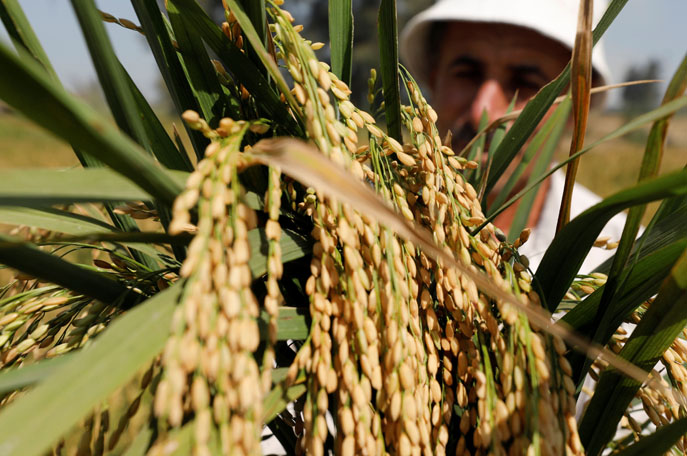COMMENT: On #WorldWaterDay and #InternationalDayofForests, Sareh Forouzesh and Catherine Moncrieff of CDP point out how disclosing impacts and investing in tackling risks are yielding dividends for companies like Unilever, L'Oreal, Mars and Marfrig
If water is the lifeblood that runs through our planet, then the world’s forests are its lungs. Both are vital to the living foundation that underpins our society and the global economy.
As we celebrate World Water Day and the International Day of Forests, we need to talk about the private sector’s role in shaping a more sustainable, deforestation-free and water-secure future. The climate crisis makes this even more urgent.
Every day, water shortages affect more than 3 billion people. The amount of freshwater available per person has plunged by a fifth over two decades, and there has been an 84% collapse in freshwater species population sizes since 1970, even greater than the loss of land-based wildlife.
Companies are bracing for $53.1bn in deforestation-related risks, yet estimate the cost of responding to these risks at just $6.6bn
Meanwhile, 10m hectares of precious forests have been destroyed every year since 2015 – primarily driven by agricultural expansion. With large-scale commercial agriculture accounting for 40% of tropical deforestation between 2000-2010, the private sector has a huge role to play in reversing these trends.
The good news is that companies have a solid business case for acting on both of these issues.
Our global forests report – released today – shows that companies are bracing for $53.1bn in deforestation-related risks, including more extreme weather and shifts in consumer preferences. And yet companies estimate the cost of responding to these risks at just $6.6bn in total.
Likewise, companies reporting to CDP stand to lose up to $301bn if they fail to address water risks such as floods, storms and water scarcity. They also estimate the total cost of addressing these risks at $55bn – less than one fifth of the cost of risks.

Business as usual is by far the costliest option, and companies can only manage what they measure. Environmental disclosure helps companies understand their exposure to these risks and take steps to address them. We’ve found that a majority of companies reporting to CDP find that disclosing makes them more competitive, by allowing them to reduce their environmental impacts, increase efficiency and reduce costs.
There is no cost-free choice available to companies – either they wait to be left firefighting these emergent risks, or they take action now: disclose their impacts, invest in tackling the risks and take advantage of the opportunities.
The benefits of taking action on water security and deforestation aren’t limited to effective risk-management. Forward-thinking companies also have a chance to gain a competitive edge by enhancing their brands, bringing new green products to market and improving their resilience to environmental shocks.
As human activity encroaches on wildlife habitats through increasing deforestation, we increase the likelihood of becoming exposed to new zoonotic viruses
For example, Unilever has launched a new “dry personal care” range for water-stressed areas, which the company expects to generate $2.2-3.4bn of sales by 2025.
L'Oréal is promoting the adoption of improved agricultural practices, traceability and Roundtable on Sustainable Palm Oil (RSPO) certification among Malaysian palm oil producers, in order to improve supply chain resilience and avoid price volatility.
Mars estimates savings of $60-180m through rolling out “wet-dry” rice farming techniques that save water and carbon and avoid supply shortages. Mars is also categorised as “best practice” in our new forests report, having taken action to eliminate deforestation from its palm oil supply chain. (See How Mars is helping to slash water use in growing rice)

These actions create a ripple effect that provides added value far beyond the company balance sheets. Corporate action on water and forests has the potential to help society tackle the biggest issues of the day – from Covid-19 to climate change.
Protecting forests and wild habitats is essential for reducing the risk of future pandemics, which we’ve seen can be devastating. As human activity encroaches on wildlife habitats through increasing deforestation and land degradation, we increase the likelihood of becoming exposed to new and potentially deadly zoonotic viruses that can spread between humans, such as Covid-19 and Ebola.
Meanwhile we’ve learnt first-hand how clean water, sanitation and hygiene are vital for preventing and managing the spread of viruses. Many of us take the ability to wash our hands for granted, but access to clean running water is still not yet universal.
We like to say that if climate change is a shark, then water is its teeth
Covid-19 has shown that we are only as strong as our most vulnerable neighbour. Viruses – like environmental hazards – do not care for national borders. We are far from achieving clean water and sanitation for all, but a sustainable and resilient world depends upon it.
With deforestation responsible for 15% of global greenhouse gas emissions and the use, storage and lack of treatment of water accounting for another 10%, preserving the world’s forests and safeguarding water resources are both vital for mitigating and adapting to climate change.
We like to say that if climate change is a shark, then water is its teeth. The most immediate impacts of climate change tend to materialise as an acute lack, or over presence, of water through droughts, floods and storms. Furthermore, as trees and forests stabilise global and local weather patterns, cutting them down will only increase the likelihood of extreme weather events.

Nature-based solutions such as reforestation, planting mangroves and agro-forestry can provide a win-win-win: cutting emissions, restoring forests, and stabilising the water cycle.
Companies can help advance these solutions. For example, in response to the increased droughts and extreme weather harming pasture productivity, Marfrig Global Foods S/A is working to restore riparian forests in the local watershed in Tangará da Serra (Mato Grosso, Brazil).
The world’s woods and waters are tightly entwined with both our climate system and the global economy, as demonstrated by last year’s devastating forest fires in Australia, California and the Amazon. Solutions to tackle these crises must work in tandem. The good news is that the business case is crystal-clear and the benefits to society are vast. It’s time for the corporate world to step up and take transformative action.
Sareh Forouzesh is an associate director of forests, and Catherine Moncrieff is associate director of water at CDP.

